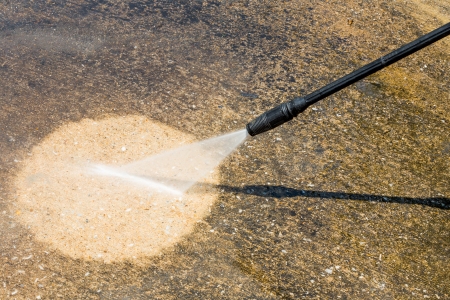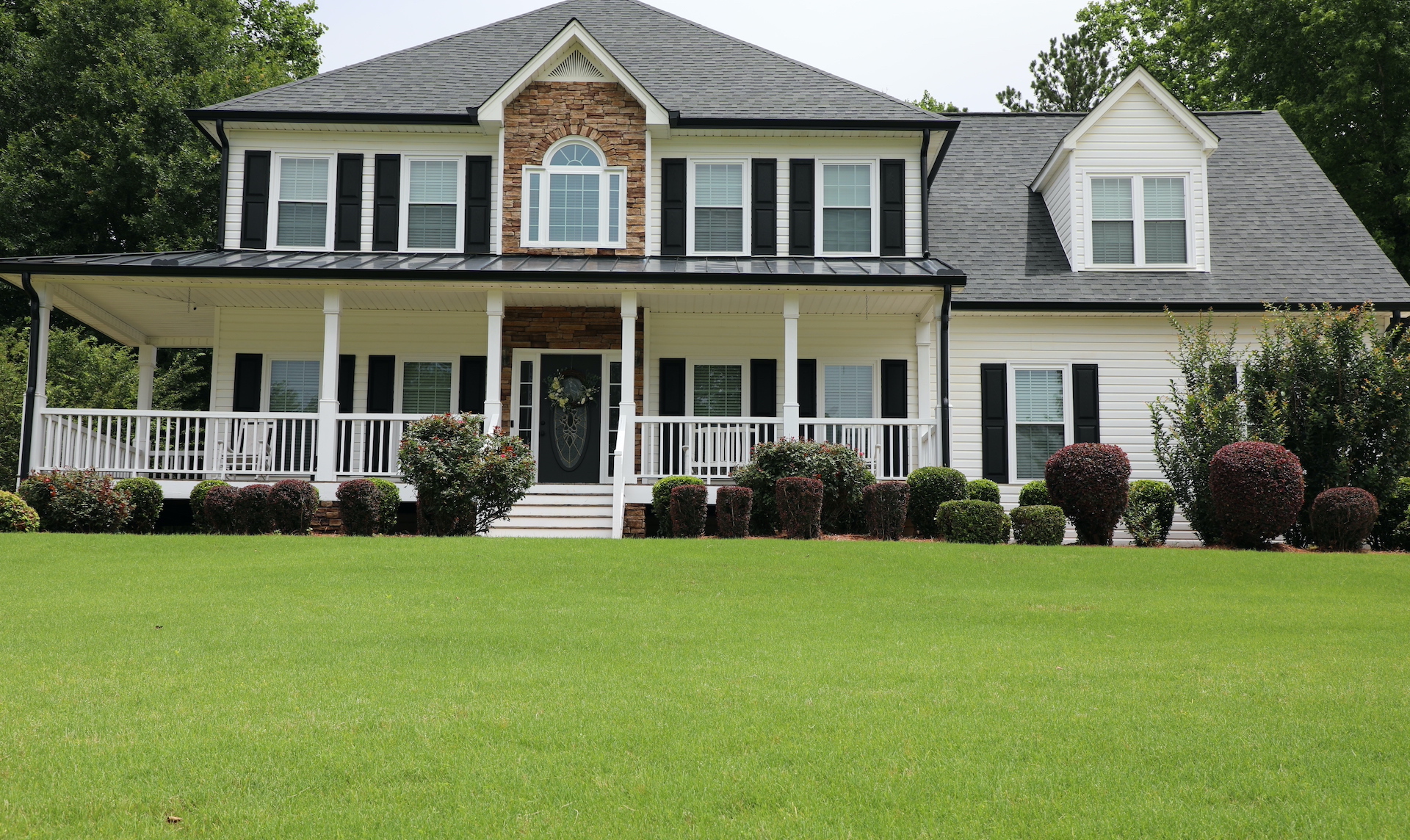
Pressure Washing vs Softwashing – Which Is Safer for Your Driveway in Rome, GA?
When it comes to keeping your driveway clean and looking sharp, Rome, GA, homeowners have more than just one option on the table.
The two most common methods, pressure washing and softwashing, both promise sparkling results. But which one is truly safer for your driveway?
That’s the big question, and it’s one Southern SW Services hears from customers all the time.
Driveways in Northwest Georgia, especially in Rome, deal with more than just everyday dirt and dust. Humidity, pollen, algae, mildew, and even red clay stains can cling stubbornly to concrete, asphalt, and brick.
The wrong cleaning method might remove the grime, but also shorten the lifespan of your driveway’s surface. So before you crank up the pressure washer or call in a pro, let’s break down the differences between pressure washing and softwashing and figure out which method gives your driveway the TLC it really needs.
What Exactly Is Pressure Washing?
Most people are familiar with pressure washing. It’s the process of blasting water at a very high PSI (pounds per square inch) to strip away dirt, grime, mold, algae, and stains.
Think of it as using water with the strength of a firehose, but concentrated into a smaller spray. For concrete and other durable surfaces, it can be extremely effective. Pressure washers can easily handle tough stains like motor oil spills, gum, or years of caked-on dirt.
Pros of Pressure Washing
- Removes heavy, stubborn stains quickly
- Works well on extremely durable materials (like certain types of concrete or stone)
- Provides almost immediate visible results
Cons of Pressure Washing
- Can etch or crack softer surfaces like brick, pavers, or asphalt
- May strip sealants or finishes from driveways
- High pressure can force water into cracks, worsening existing damage
- Often leaves behind streaks if not done carefully
For some Rome homeowners, pressure washing is appealing because it feels powerful. You see the dirt literally blasted away in seconds. But that same power is also what makes it risky.
What About Softwashing?
Softwashing takes a gentler approach. Instead of relying on high water pressure, it uses eco-friendly cleaning solutions combined with low-pressure water to remove dirt, mold, algae, and stains.
The “soft” in softwashing doesn’t mean weak; it means controlled. This method is particularly popular for surfaces that can’t withstand high pressure: roofs, siding, and yes, driveways that need careful handling.
Pros of Softwashing
- Safe for nearly all surfaces, including delicate ones
- Uses cleaning solutions that kill algae, mold, and mildew at the root (not just wash them away)
- Prevents regrowth for longer-lasting results
- Gentle process that doesn’t damage driveway materials
Cons of Softwashing
- May not remove extremely heavy oil or paint stains without extra steps
- Requires professional application for best results
- Doesn’t provide the same instant “blast-away” look that pressure washing does—results appear more gradually as solutions do their work
Softwashing is about long-term protection, not just immediate results. It goes deeper by treating the source of the problem, organic growth like algae and mildew, so your driveway stays cleaner for longer.
Driveways in Rome, GA: Unique Cleaning Challenges
Rome isn’t just any Southern town; it’s a place where humidity and red clay meet head-on. These environmental factors play a big role in how your driveway ages.
- Humidity and Shade: Many driveways in Rome are shaded by tall trees or nearby homes, which means moisture lingers. That creates the perfect breeding ground for algae and mildew.
- Georgia Red Clay: This soil is notorious for leaving stubborn orange-red stains that standard pressure washing may smear rather than remove.
- Seasonal Pollen: If you live in Rome, you know spring means a thick coat of yellow-green pollen on everything—including your driveway.
- Wear and Tear: Between heavy rains, hot summers, and freezing winters, surfaces here go through a lot of expansion and contraction. High-pressure washing can worsen small cracks in concrete or asphalt.
This is why the choice between pressure washing and softwashing isn’t just about “clean vs. cleaner,” it’s about protecting your driveway in a climate that’s tough on surfaces.
Which Method Is Safer for Your Driveway?
Here’s the bottom line:
If your driveway is new, sealed concrete with no cracks, and you’re dealing with tough stains like motor oil, pressure washing can be safe if handled carefully and by a professional.
If your driveway is aged, cracked, brick, asphalt, or paver-based, softwashing is the safer choice. The low pressure won’t damage the materials, and the cleaning solutions kill the organic growth that pressure washing often leaves behind.
In Rome’s climate, where algae and mildew thrive, softwashing often comes out ahead because it prevents regrowth. Pressure washing might look impressive at first, but if the algae spores are still alive, you’ll see green streaks again in no time.
Professional vs. DIY: Why It Matters
Many homeowners in Rome, GA, are tempted to rent a pressure washer from a local hardware store and handle driveway cleaning themselves. While this can save money upfront, it often costs more in the long run.
- Risk of Damage: Misusing a pressure washer can leave streaks, etch lines, or even cracks.
- Time and Effort: It’s physically demanding work, especially on larger driveways.
- Incomplete Cleaning: Without the right detergents, you’re often just blasting dirt around instead of removing it fully.
- Safety Hazards: Pressure washers are powerful enough to cause serious injury if misdirected.
Softwashing, on the other hand, isn’t something you can easily DIY unless you’re trained. The cleaning solutions and equipment require a professional hand.
That’s why many Rome homeowners turn to local companies like Southern SW Services, which know how to tailor the process to both the material of the driveway and the Georgia climate.
How Often Should You Clean Your Driveway in Rome, GA?
The answer depends on the surrounding environment:
- High-shade, high-humidity areas: At least once a year (sometimes twice) to prevent algae and mildew buildup.
- Sunny, open driveways: Every 1–2 years is usually enough.
- Heavy vehicle use or red clay exposure: Annual cleanings are recommended.
Most experts agree that softwashing every 12–18 months is ideal for maintaining both safety and curb appeal in Rome.
The Bigger Picture: Driveway Cleaning and Curb Appeal
Your driveway is one of the first things people notice when they pull up to your home. A dirty, streaked, or algae-covered driveway can drag down curb appeal—even if the rest of your home is pristine.
More importantly, the buildup of mildew or algae isn’t just an eyesore; it can become slippery, creating a safety hazard for kids, visitors, and even delivery drivers.
Keeping your driveway clean is about aesthetics, yes, but it’s also about protecting your property and the people who use it every day.
Final Thoughts
So, which is safer for your Rome, GA driveway, pressure washing or softwashing? The verdict leans strongly toward softwashing for most homeowners.
It’s gentler, longer-lasting, and better suited to the unique challenges of Rome’s climate and soils.
Pressure washing has its place, but it should be used sparingly and carefully, preferably by professionals.
If you’re ready to give your driveway the care it deserves, Southern SW Services offers expert softwashing that protects surfaces while restoring that “like-new” look.
Even better, they provide complimentary add-on services that can boost your home’s curb appeal beyond just the driveway.
Book a service today and let the pros handle the grime while you enjoy a cleaner, safer, and more beautiful home exterior.

See the Difference a Professional Wash Makes
Schedule Your Pressure Washing Service In Rome Now!